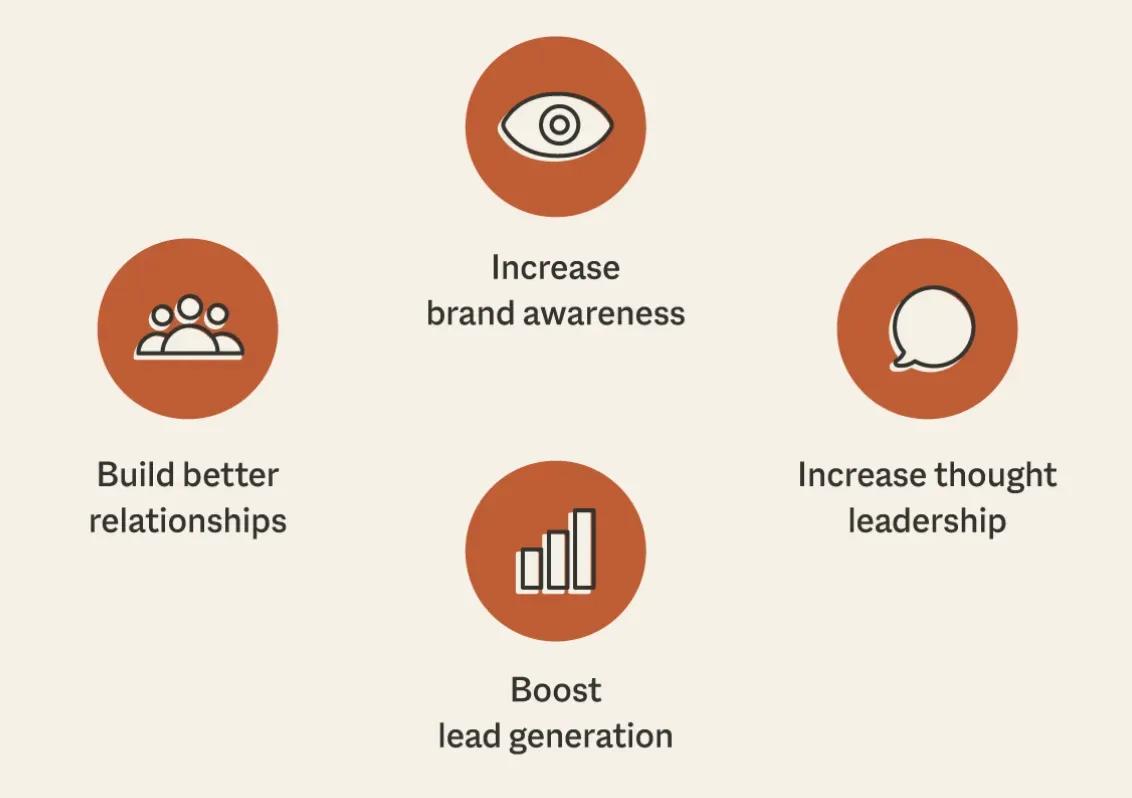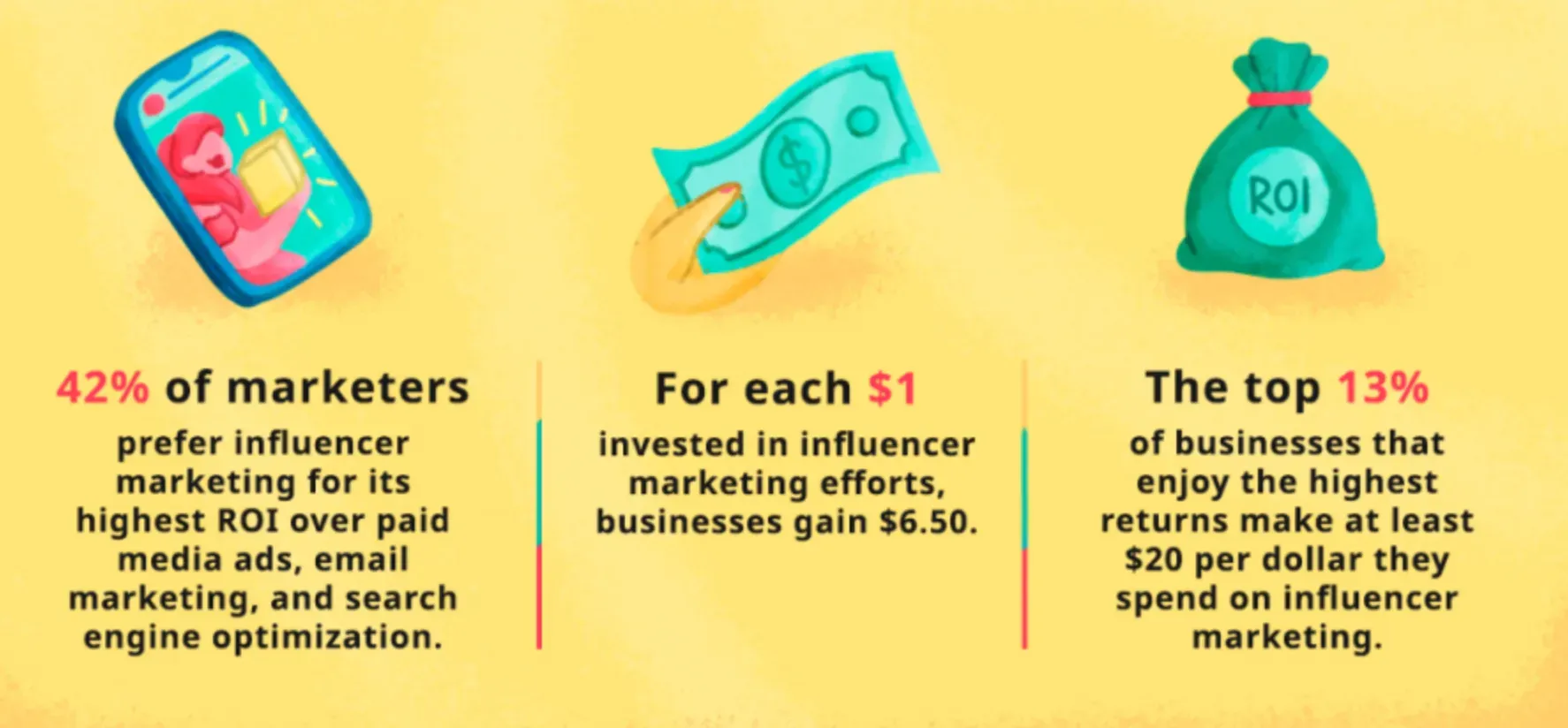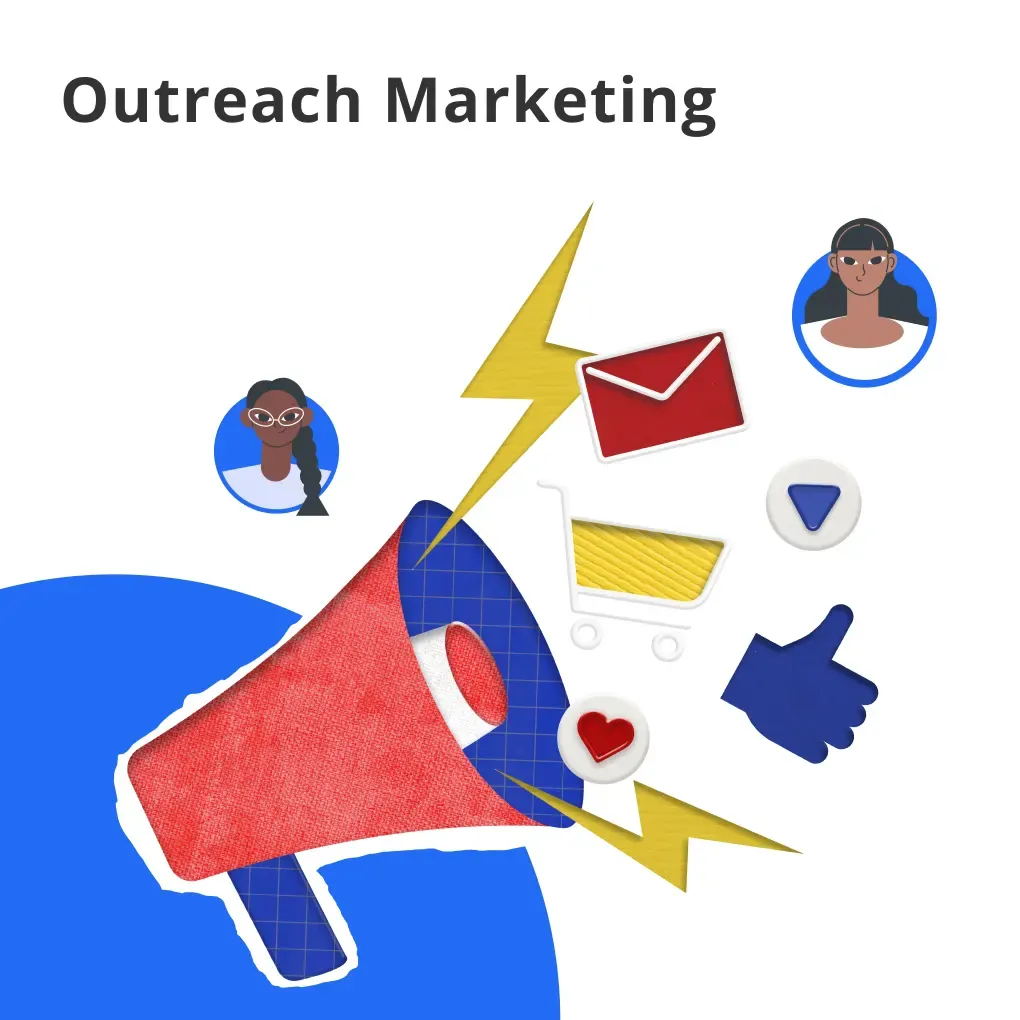What is Outreach Marketing?
Outreach Marketing focuses on establishing relationships with influencers, bloggers, industry leaders, and other relevant entities in the industry to expand the brand's reach.
It involves reaching out to key market players to collaborate in various campaigns such as content collaborations, guest posts, event partnerships, and product reviews.
The Importance and Role of Outreach Marketing
Outreach Marketing enables brands to reach their target audience through trusted voices, providing social proof and extending the reach of their message by leveraging the audiences of influencers and industry leaders.
This strategy bridges connections, enhances brand visibility, and can increase lead generation and conversions, making it vital for marketing success.
The Pillars of Outreach Marketing
To fully understand Outreach Marketing, we need to navigate the key components or pillars that constitute it. Here is a closer look at these key elements:
Research and Identify relevant players
The initial stage of an outreach campaign involves identifying which influencers, bloggers, industry leaders, or potential collaborators fit your target market demographics and have audiences that align with your target consumers.
Content Creation and Structuring
A core element of outreach marketing is creating high-quality, valuable content that attracts and engages both the collaborator and their audience.
This could involve crafting guest posts, designing infographics, recording podcasts or webinars, or other forms of content relevant to your industry.
Outreach Efforts
This involves making direct contact with potential collaborators. It could be via social media, email, events, or any other strategic communication channel.
This step also includes presenting your proposition and setting a foundation for a fruitful relationship.
Collaboration and Partnership
Once a connection is established and a mutual agreement is reached, the stage of collaboration and partnership commences.
This may involve publishing guest posts, sharing content, offering exclusive deals, co-hosting events, or any other form of tangible partnership.
Evaluation and Follow-Up
It's important to measure the effectiveness of each collaboration to ensure that it's reaching the intended audience and producing positive ROI.
Data to track might include web traffic, social media engagement, leads, or direct sales.
Implementation of Outreach Marketing
Now that we've broken down the process, let's look at how Outreach Marketing can be implemented for maximum benefits.
Guest Blogging
Potential collaborators, particularly bloggers, are always on the lookout for high-quality content. By offering well-researched and engaging guest posts, you provide value to the collaborator while reaching new audiences.
Influencer Campaigns
Influencers, due to their large following and high audience trust, can be effective promoters of your brand, products, or services.
Starting an influencer campaign involves selecting influencers who align with your brand, reaching out to them, and arranging a mutually beneficial campaign.
Local Outreach
Connecting with local bloggers, influencers, non-profit events, and community organizations can provide a tangible and direct impact on your local community and target market.
Product Reviews
Asking relevant industry influencers, bloggers, or reviewers to review your product or service can offer hard-hitting social proof and give consumers more confidence in your brand.
Social Media Collaborations
Leveraging popular social media platforms to collaborate with influencers, inviting them to take over your social media account for a day, or co-hosting live sessions can increase brand visibility and audience engagement.
Podcasts and Webinars
Featuring or being featured on established industry podcasts and webinars can establish you as an expert in your field and increase brand awareness.
The Benefits of Outreach Marketing
Outreach Marketing, when implemented effectively, can yield multiple benefits, including:

Brand Awareness and Visibility
Outreach Marketing exposes your brand to broader audiences, effectively boosting its visibility and awareness.
Better Search Engine Ranking
Guest posts on authoritative blogs and sites can garner high-quality backlinks, contributing to improved search engine rankings.
Increased Trust and Credibility
By collaborating with respected influencers and industry leaders, brands absorb a part of their reputation and credibility, leading to increased consumer trust.
Drive More Website Traffic
Outreach Marketing can attract more website visitors, thanks to increased visibility and improved search engine rankings.
Boost Sales or Conversions
With better brand visibility and reputation, increased website traffic, and leads generated via collaborations, there's a healthier scope for sales and conversions.
Suggested Reading:
Selling in Marketing
Challenges in Outreach Marketing
Despite all the benefits, implementing Outreach Marketing can pose some challenges:
Finding the Right Collaborators
Identifying influencers, bloggers, or industry leaders who align with your brand's values and customer interests can be challenging.
Relationship Building
Building fruitful relationships requires considerable time and effort. There's always the possibility of rejection, or potential collaborators may not respond as expected to your outreach efforts.
Creating Unique, Quality Content
Delivering high-quality, engaging, and unique content consistently can be a challenging task but is crucial for the success of outreach marketing.
Evaluating Success
Determining the success of your outreach efforts can be challenging, given the qualitative nature of some benefits like brand visibility and trust.
Despite there being inevitable challenges, the benefits of Outreach Marketing and the role it plays in expanding your brand's visibility, trust, and influence cannot be ignored.
By choosing the right collaborators, crafting compelling content, and devising outreach strategies, brands can effectively leverage Outreach Marketing to achieve their goals.
Emerging Trends in Outreach Marketing
Outreach Marketing is continually evolving with changing consumer behaviors and advancements in technology. Recent trends include:

Micro-Influencer Marketing
Brands are increasingly turning to 'micro-influencers’ because their smaller, yet highly engaged, audiences offer better ROI and are perceived to be more authentic.
Video Content Collaboration
Video is becoming a dominant form of content, with collaborations in YouTube videos, Instagram Stories, or TikTok gaining popularity.
Live Streaming Collaborations
Brands are leveraging the trend in live streaming to connect with audiences in real time and offer highly engaging content.
Social Responsibility Collaborations
Brands are associating with influencers and industry leaders who are vocal about social issues, promoting their brand as socially responsible.
Use of AI and Big Data
Brands are using AI and big data to identify influencers, track and analyze outreach campaigns, and predict future trends.
Frequently Asked Questions (FAQs)
What makes outreach marketing different from traditional marketing?
Outreach marketing focuses on building relationships with individuals or groups that can influence your target audience, rather than marketing directly to the consumers.
How does influencer partnership fit into outreach marketing?
Influencers can extend the reach of your brand by tapping into their follower base, effectively amplifying your marketing message.
Can outreach marketing help in link building for SEO?
Yes, by establishing connections with bloggers and webmasters, outreach marketing can lead to high-quality backlinks, boosting SEO efforts.
How is outreach marketing adapted for B2B strategies?
In B2B, outreach marketing often targets industry thought leaders, with the aim of fostering partnerships or endorsements that influence business clients.
What's the role of social proof in outreach marketing?
Social proof, like testimonials or shares by respected figures, reinforces trusted endorsements, enhancing an outreach marketing campaign’s credibility.

